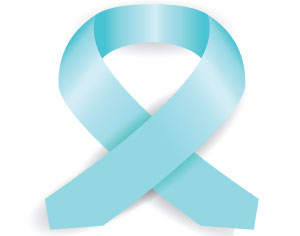Is There a Link between HGH and Cancer?
Medical science has raised questions about a possible link between treatment with HGH and cancer development. It has been a long-standing action that treatment with HGH therapy is not provided to patients with active cancer or who are undergoing treatment for any form of this disease. Hormone replacement therapy doctors typically wait until the oncologist providing treatment has agreed to HRT being provided once remission has been attained – to be on the safe side.
The HGH and IGF-1 cancer connection is supported by the fact that, together, these two essential hormones influence cellular regeneration. A proliferation of cancer cell growth is the primary concern of some doctors studying this topic. Although there is no concrete proof that HGH, IGF -1 and cancer are connected, caution is typically the best plan of action.
Much of the concern over the HGH cancer debate centers on the research of people (mostly children), who received this treatment pre-1985. At that time, HGH therapy was derived from human brains. Due to increased problems stemming from that treatment, a new, safer method of producing recombinant human growth hormone therapy was derived and those problems were eliminated. The risks associated with the increased risk of developing colon cancer and Hodgkin’s disease were no longer a primary concern.
The question of does HGH cause cancer is a complicated one, with no general consensus among doctors on both sides of the aisle. Much like a political debate, there are facts and studies supporting both the affirmative and negative viewpoints. As previously mentioned, much of the concern regarding certain types of cancer stem from prior to 1985 use of this treatment. That does not mean that no risks are present today, as any kind of medical treatment will always have certain risk factors.
Does HGH Cause Cancer?
Epidemiological studies have been down on patients diagnosed with acromegaly showing an increased risk of colorectal cancer. Acromegaly is a possible side effect of HGH therapy, and it is linked to an overabundance of human growth hormone in the body. This becomes a concern for those individuals who are getting this medication from inexperienced doctors, or who are self-diagnosing or purchasing this treatment from the black market on their own.
How can HGH cause cancer in these cases? Increasing the level of growth hormone to a point higher than what is safe for the body can cause many different issues, including acromegaly and an increased risk of cancer – although both of these concerns are still extremely slight.
Studies of children who survived childhood cancer and then received HGH replacement therapy show no evidence of increased cancer risk. The theory that even if there is a slight HGH and IGF-1 cancer risk, it is no greater than that of untreated patients who have been diagnosed as GH deficient.
Part of the concern of an increased HGH cancer risk is that growth hormone causes the liver to increase production of another essential chemical messenger – Insulin Growth Factor 1 (IGF-1). Higher levels of IGF-1 in the blood have been linked to a greater chance of developing prostate and breast cancer. The increase, however, is minimal, and HRT doctors check the blood for markers that could indicate cancer in the body before prescribing HGH therapy.
Reducing the Risk of Cancer from HGH Therapy
In order to reduce the risk of dangers associated with the use of HGH and cancer, doctors specializing in hormone replacement conduct detailed blood analysis, physical examination, and carefully review an individual’s complete medical history background before prescribing any type of medication. This helps them to rule out an increased risk of cancer being present before treatment with HGH begins.
In order for an individual to do all that is possible on his or her end, complete honesty with the hormone specialist is required. When filling out the medical questionnaire, it is essential to provide all relevant – and even non-relevant information. In essence – omit nothing. Even if it seems inconsequential or not related to the symptoms of hormonal decline, it must still be included for the doctor’s reference.
Also, provide immediate feedback if any abnormal issues or side effects should arise while on HGH therapy. The risk of any type of HGH cancer development is exceedingly slight, and the benefits that result from this treatment are widespread throughout the body. In fact, the issue of cellular regeneration is extremely important, as new cells are vital for the internal organs, muscles, bones, skin, hair, nails, and more.
As always, it is best to speak directly with a hormone replacement therapy specialist to obtain any personal answers and information that is relevant to your own situation. The medical advisors at National HRT provide complimentary consultations to adults throughout the US.
- Does growth hormone cause cancer? Jenkins PJ, Mukherjee A, Shalet SM. Clin Endocrinol (Oxf). 2006 Feb;64(2):115-21.



